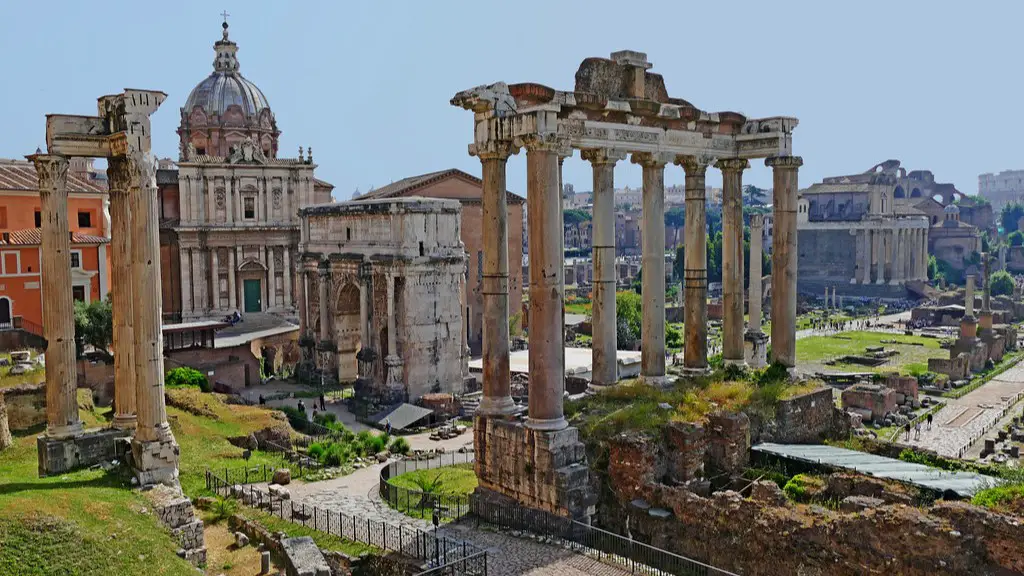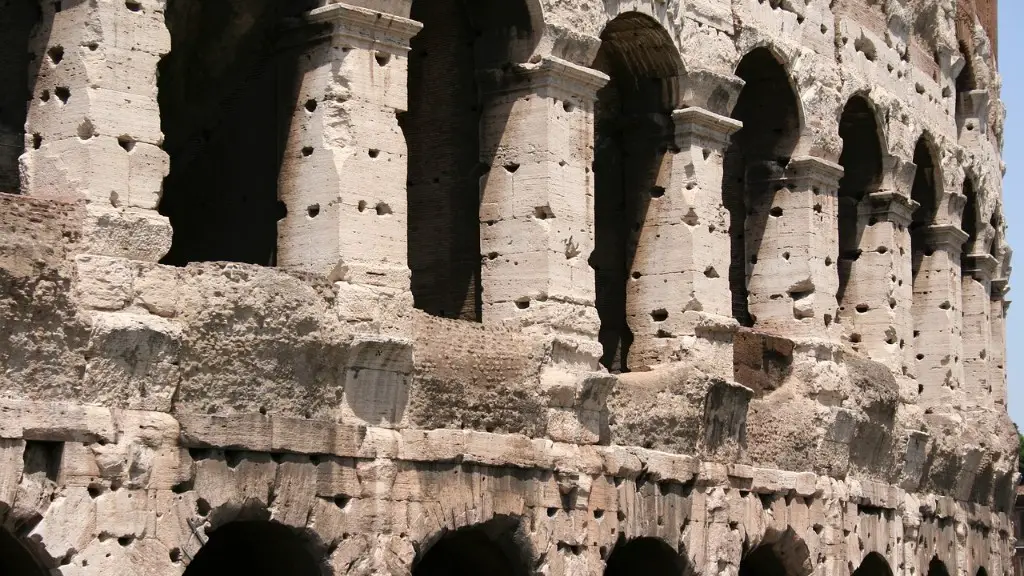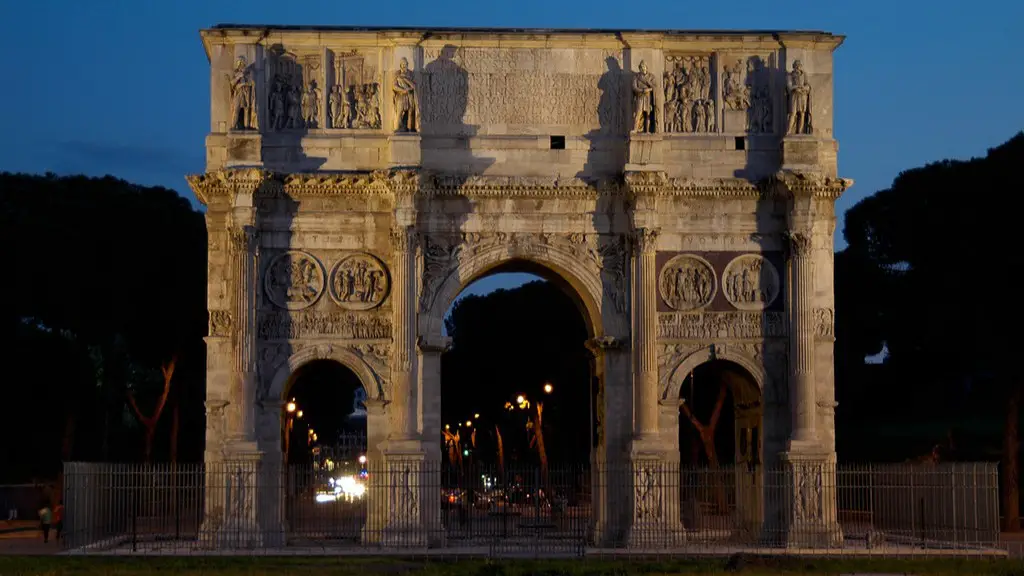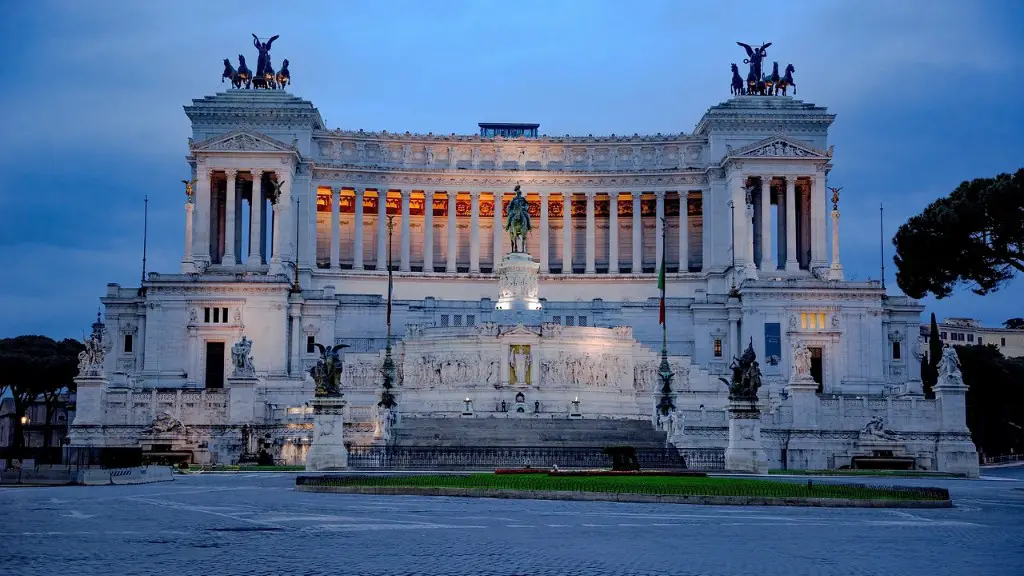Introduction
Ancient Rome was one of the most influential societies in history. They were masters of engineering and architecture, powerful conquerors, and the creators of a two-thousand-year-old civilization that still stands today. One could spend a lifetime studying Ancient Rome’s immense accomplishments in various fields such as politics, art, law, engineering, military and many more. This article will focus on what the Ancient Romans were truly inimitable by revealing their best traits and skills.
Politics
The Ancient Roman government was an incredibly influential political system that shaped much of Western politics. Spartacus, Julius Caesar, and Augustus all played instrumental roles in creating and implementing long-lasting laws and traditions. Many of the politics that form the basis of modern Western society come from Ancient Rome. To explore this further, one of the main contributions was ‘The Twelve Tables’ which was a set of laws that governed the Roman citizens in daily life. As a result of this, the Romans developed a system to record and preserve laws that still exist today.
Art
The art of Ancient Rome was a reflection of the social, religious, and political beliefs of the era. It was a combination of Greek art and local Italian styles. In terms of architecture, the most classic examples are the Colosseum, the Forum, and the Pantheon. These structures exemplified their engineering ability and innovation. The Romans were also renowned for their stone and marble sculptures and ceramic pieces. The use of perspective, depth of space and the use of the human figure were what truly made Roman art stand out.
Law
Before the Romans, law was governed by tradition and practised by the upper class. Ancient Rome developed the first legal system based on written laws. This system, known as the ‘Twelve Tables’, was the first set of written laws for the whole population and provided a foundation for all later legal systems in the West. The system allowed for the punishment of specific crimes, the establishment of courts, the resolution of disputes and the protection of citizens from abuse.
Engineering
The engineering and architecture that the Romans have left behind are some of the most impressive achievements in the ancient world. The Romans were accomplished builders and constructed bridges, aqueducts, amphitheatres and forts to help them communicate and defend their empire. The most impressive are the aqueducts, which are still standing today and travel hundreds of miles. In addition to that, the engineering behind the Colosseum, the Pantheon and their public baths was unlike anything the world had ever seen.
Military
The Roman Military was one of the most powerful forces in human history. With a combination of infantry, cavalry, artillery and siege technology, the Roman Army swept over Europe and the Middle East in a period of unprecedented power and influence. The training and discipline of the Roman legionnaires was unmatched and their ability to adapt to changing warfare tactics led to a lasting legacy. Their trust in organisation and formations on the battlefield allowed their vast Empire to expand for centuries.
Archaeology
The archaeological evidence from ancient Rome is some of the most extensive of any ancient civilisation. The Roman Empire was heavily documented and much of the evidence still exists today. From coins to inscriptions, mosaics to sculptures, the archaeological record of the Roman Empire is vast and complex. From this archaeological evidence, it is possible to understand the culture and daily life of the Ancient Romans in far greater detail than other civilisations.
Influence
One of the most important contributions of Ancient Rome was its influence on later eras. From its legal system to its art and architecture, the legacy of Ancient Rome can still be seen in the Western world today. Even with the fall of the Roman Empire, its ideas, laws and culture continued to shape the development of Europe and the Mediterranean region. Its language, Latin, is still widely used in many different fields and its architecture has inspired generations of artists.
Philosophy
The Ancient Romans were also renowned for their philosophy and contemplation of life and its journey. The stoics saw material possessions and emotional attachments as a means of diminishing freedom. They also believed in a higher goal of the pursuit of a meaningful life, through simple living and the development of self-control. Marcus Aurelius was a notable Roman politician and philosopher who wrote about self-discipline, inner strength and the importance of living a good life.
Architecture
The Ancient Romans were known for their innovative and iconic architecture. Their use of columns, arches, and domes left a lasting impact on the architecture of later eras. The Pantheon was their most famous structure, and it remains one of the most iconic buildings of all time. It is also a testament to their ingenuity and engineering. But it is not just their grand monuments that inspired architects of later eras, it is also the smaller elements such as vaults, arches, and columns that are still seen in modern day buildings.
Science
The Ancient Romans made significant contributions to the development of science. They began to broaden the scope of thinking by using experimentation and observation. Ancient Roman scholars such as Galen and Ptolemy made extensive studies of anatomy, mathematics, astronomy and optics. They did not have the same understanding of certain natural phenomena as we do today, but their discoveries and theories laid the foundation for later scholars.
Industry
The Ancient Romans were pioneers of industry. They developed a complex system that was underpinned by the production of goods and services. From advanced manufacturing techniques to widespread trade networks, their industry was groundbreaking and it allowed their empire to flourish and expand. They were most renowned for their production of weapons and tools, and they even invented tools such as the lathe and the plough.
Medicine
The Ancient Romans had an advanced medical system and understanding of human anatomy. Surgeons performed complex operations and medical treatments were much improved from those of previous civilisations. They developed ingenious ways to diagnose and treat ailments and diseases, from herbs to surgical procedures. Galen, a prominent Roman doctor, developed new systems and theories that were used for centuries after his death.
Conclusion
The Ancient Romans were a remarkable civilisation and achieved many amazing things throughout their time. From politics to science and engineering to architecture, the Ancient Romans were truly inimitable and their influence on the world today is still evident. Through their politics, art, law, engineering, military, archaeology and industry, the Ancient Roman Empire established a lasting legacy that will continue to be remembered and appreciated for all time.



